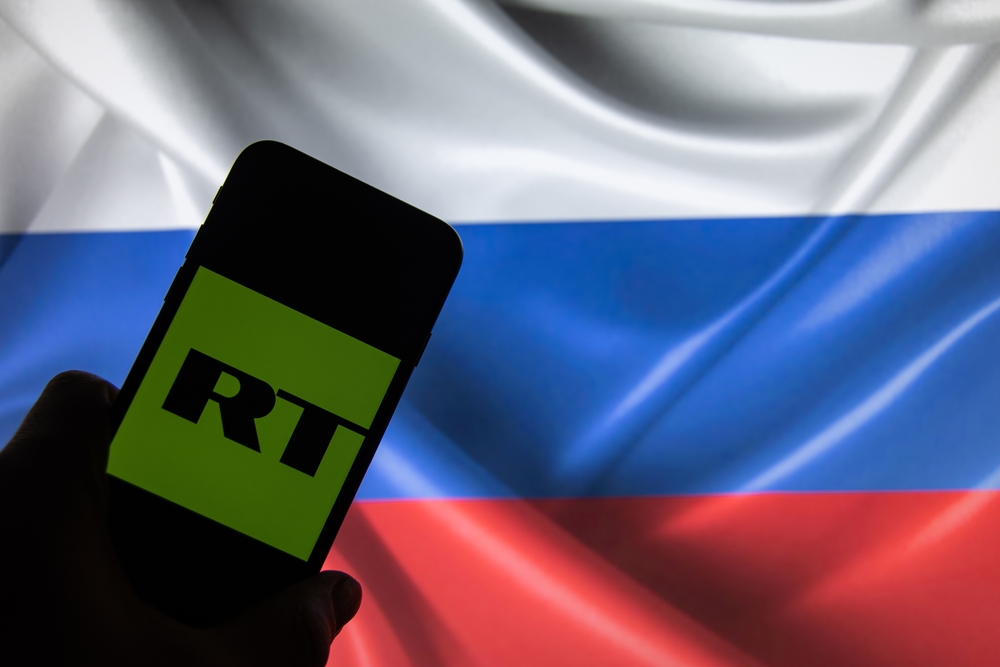

The Silent Arrival of “Russia Today” in Chile: Propaganda and the Challenge to Freedom of Speech
Sascha Hannig Nuñez
(Doctoral student, Graduate School of Law, Hitotsubashi University)
September 11, 2025
The original commentary was published by Athenalab[1] on July 1, 2025. Context and hyperlinks have been added from the original version.
The arrival of the state-owned media outlet Russia Today on Chilean public television networks in June 2025 caused significant debate[2] among the local population, but lessons from this incident can be projected worldwide. Some of the issues that were criticized include the non-transparent agreement that enabled the broadcast of the propagandistic channel without any previous notice or screening, and potential impact of foreign information manipulation and interference (FIMI) campaigns.
The news disseminated by media outlets in authoritarian countries, such as Telesur in Venezuela, CGTN in China, or HispanTV in Iran, is not always false information, but rather presents a propagandistic view of reality[3], seeking to exacerbate conflicts or stimulate emotional reactions that lead to irrational decisions. In some cases, the information promotes the image, values, and policies of the regime of origin, from tourism to its leaders. In other, more worrying cases, the content seeks to counter facts, open discussions, and introduce expert opinions from friendly experts. The problem is that to achieve this, authoritarian propaganda media resort to uncorroborated sources, whataboutism, or simply by spreading blatant disinformation[4]. In the instance examined here, Russia Today has given space to fake news about neo-Nazi groups in Ukraine, or the existence of biochemical laboratories in that country[5], and has propagated the Russian view of the invasion (rejected by 140 countries in the United Nations General Assembly), minimizing the economic and human impact of the war over historical mandates and expansionist rhetoric.
In the case of Chile, the lack of control or scrutiny prior to the arrival of the Russian media outlet reveals two areas of vulnerability in the national media system. First, there is a lack of concern for the country’s security in the face of “hybrid warfare” channels or non-traditional influence. The Chilean state seems to view securitization, whether in technological or cognitive terms, as something distant and reserved for major powers, and any preventive action is understood as renouncing “neutrality,” a word that has become the epitome of the government’s international policy. Consequently, when controversies arise in these “new spaces” of power expansion, whether in cybersecurity, information, or even public-private development (all relevant to this case), there are no real protection mechanisms that allow the country to safeguard its citizens a priori.
In contrast, the world has increasingly adopted the securitization of information. In February 2022, the European Union (EU) made a decision to ban the transmission of Russian state television[6] and media outlets Sputnik and Russia Today. The primary reason for this was the Kremlin’s invasion of Ukraine, but there were also concerns about possible political and cultural influences from the aggressor country’s agenda. At the end of 2024, the EU expanded its measure to four other Russian media outlets, Voice of Europe, RIA Novosti, Izvestia, and Rossiyskaya Gazeta—and in response, Vladimir Putin’s regime censored 81 Western media outlets in its territories[7]. Whatever the interpretation and responses in the rest of the world, the actions of both blocs demonstrate how crucial the information space is in today’s world.
The second—and perhaps more important—flank is the democratic and political debate. Freedom of expression is always a sensitive issue, even more so in Chile given its late-20th-century historical processes. Institutions are cautious when making decisions that could censor content that may be accurate, useful to the debate, and of general interest. The question is how countries can effectively confront actions by authoritarian leaders with a clear agenda in terms of political impact and distortion of information spaces, something that was recently discussed at the Internet Governance Forum in Oslo. As the National Television Council (CNTV) stated in response to the incident, the institution does not prohibit the broadcast of foreign content; however, “the transmission of content from a government at war, as is the case with Russia, can open legitimate debates about the protection of pluralism and democracy.” How could democracy be affected by the existence of a Russian channel in its media landscape? The first answer has to do with the possible distortion of democratic discourse, especially during an election year and in the context of a polarized society with clear frustrations about the political system. The second is the precedent this situation sets for future FIMI campaigns. In simpler words, some people argue that Chilean institutions committing to non-censorship could be counter-productive to the country’s security and stability, while others attempt to make a distinction between lawful dissemination of information and the arrival of a propagandistic channel sponsored by an authoritarian state that has a track-record of disruptive information campaigns and disinformation spreading.
Finally, an argument in defense of the channel’s establishment in Chile is that Russia Today is comparable to foreign state media outlets such as the BBC or Deutsche Welle (DW). However, this comparison is inadequate and could even be malicious. The reason is that not all state media operate under the same principles. Yes, media outlets such as the BBC, DW, and Japan’s NHK are state-owned, but they are governed by strict laws that protect the freedom of expression of their members and guarantee minimum democratic values. One of the objectives of these channels is to promote the culture of their countries, but they give themselves the space to operate transparently and offer space for pluralism. In contrast, authoritarian state propaganda media have clear objectives, established by the foreign policy of their regimes of origin, which seek to expand their soft power through narrative influence, authoritarian cooperation, confusion, and, among other mechanisms, explicit disinformation. For all these reasons, and beyond the specific case of Russia Today, Chile must begin to take part in this international debate, as this fact once again makes it clear that the absence of discussion in pursuit of “neutrality” makes our democracy more vulnerable to these phenomena.
[1] Hannig Núñez, S. “COMENTARIO | Russia Today en Chile: consecuencias políticas y democráticas”, AthenaLAB, (July 1, 2025). (www.athenalab.org/noticias/2025/07/01/ Accessed on 2025-08-12). [2] Aburto, N. “El desembarco del canal ruso RT en Chile: campaña millonaria para su difusión en TV abierta, BioBioChile – La Red de Prensa Más Grande de Chile,” Bio Bio (June 17, 2025). (https://www.biobiochile.cl/noticias/nacional/chile/2025/06/17/el-desembarco-del-canal-ruso-rt-en-chile-campana-millonaria-para-su-difusion-en-tv-abierta.shtml Accessed on 2025-08-12). [3] “Venezuela Through the Sino-Russian Media Playbook,” Alliance For Securing Democracy (April 9, 2025). (https://securingdemocracy.gmfus.org/venezuela-through-the-sino-russian-media-playbook/ Accessed on 2025-08-12). [4] Hannig Nunez, Sascha, “China’s YouTube Propaganda in Latin America,” The Diplomat (February 13, 2025). (https://thediplomat.com/2024/02/chinas-youtube-propaganda-in-latin-america/ Accessed: 12 August 2025). [5] Parachini, J.V. “Debunking Russian Lies About Biolabs at Upcoming U.N. Meetings,” Rand Institute (September 9, 2022), (https://www.rand.org/pubs/commentary/2022/09/ Accessed on 2025-08-12). [6] “EU imposes sanctions on state-owned outlets RT/Russia Today and Sputnik’s broadcasting in the EU,” Consilium. (March 2, 2022). (https://consilium.europa.eu/en-press-eu-imposes-sanctions Accessed on 2025-08-12). [7] Faulconbridge, G. et al. “Russia bans distribution of dozens of EU news outlets in retaliatory step,” Reuters (June 25, 2025). (https://www.reuters.com/world/europe/russia-bans-distribution-dozens-eu-news-outlets-retaliatory-step-2024-06-25/ Accessed on 2025-08-12).
Sascha Hannig Nunez is a Chilean international analyst with experience as a financial reporter. She currently consults for several organizations, is the Executive Secretary at the recently founded Centro de Análisis para la Democracia, Chile (CAD Chile), and supports the Global Governance Institute at Hitotsubashi University as a Research Assistant. Her main fields of study are China’s global influence and the implications of science and technology in society. Hannig has a master’s degree from Adolfo Ibáñez University and a master’s degree of International and Administrative Policy from Hitotsubashi University, Tokyo, and is a Ph.D. student at the same institution as a JICA scholar for the SDG Global Leaders program. In addition to her academic interests, she is a published fiction novelist with six novels.
